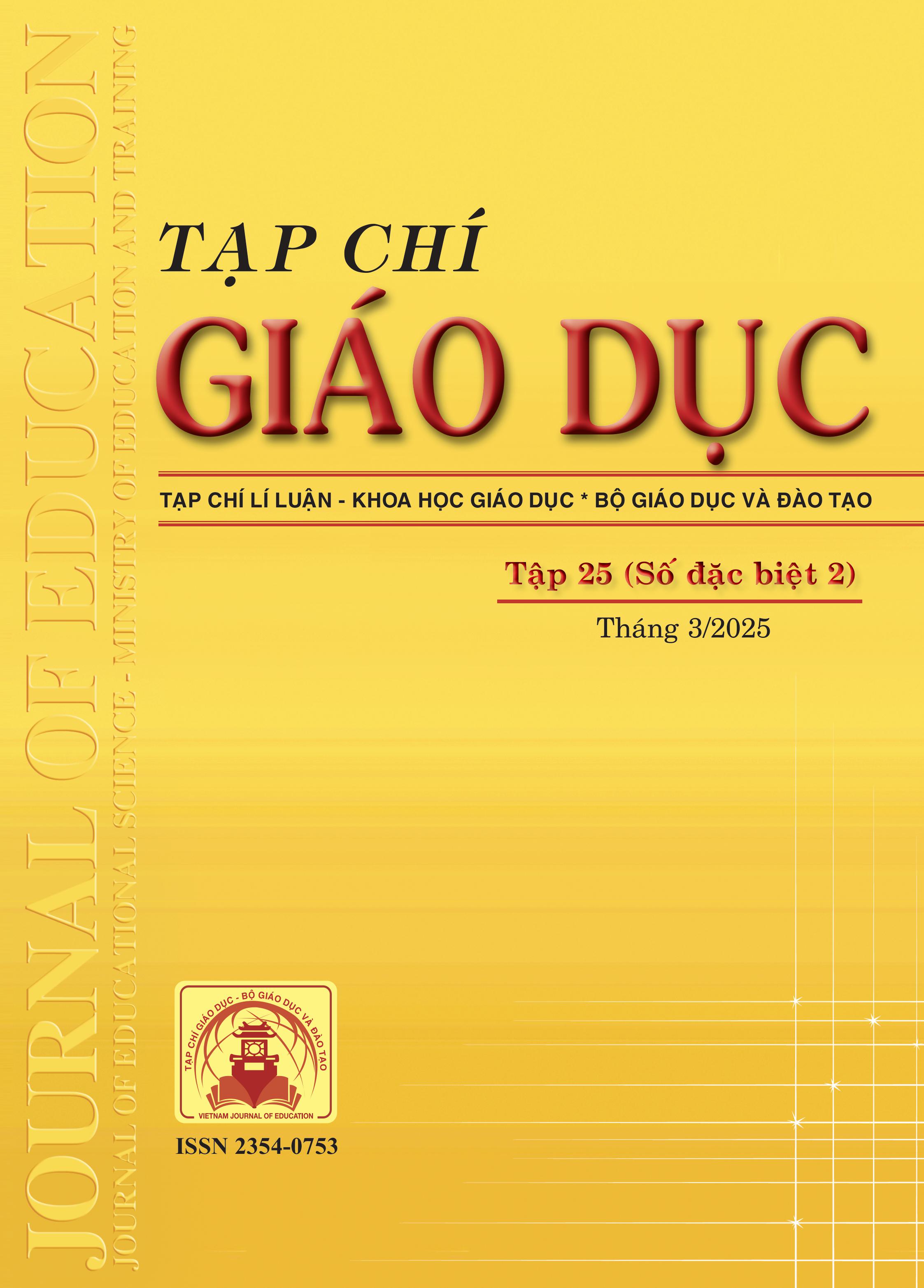Rèn luyện kĩ năng tiêu dùng cho học sinh: Nghiên cứu tại một số trường trung học phổ thông ở thành phố Rạch Giá, tỉnh Kiên Giang
Tóm tắt
Nowadays, with the development of technology, shopping becomes easier, which also makes it easy for each person to manage their spending without control, leading to financial deficits. For high school students, training consumer skills is very necessary because their ability to receive information about products is limited, and they easily follow shopping trends. The results of a survey through questionnaires and interviews with 402 students at a number of high schools in Rach Gia city, Kien Giang province show that their consumer skills are only average, leading to impulsive or uninformed purchasing decisions. After participating in a number of proposed activities to practise consumer skills, promote responsible and sustainable consumption activities, students' financial knowledge and related skills were enhanced, and their consumer skills (such as decision making, selection, need identification, critical thinking) increased significantly, especially the outstanding increase in financial management skills. To orient students' responsible consumer behavior skills, it is necessary to have their own training and practice as well as the coordinated attention of their families and schools.
Tài liệu tham khảo
Butler, H. A. (2024). Predicting everyday critical thinking: A review of critical thinking assessments. Journal of Intelligence, 12(2), 16.
De Battista, I., Curmi, F. & Said, E. (2021). Examining FoMO triggered by retargeted advertisements on young people, (Ed. Przegalinska, A., Kalkan, S., Aydin, E. and Gokerik, M.), EBOR Publication Group, Turkey, 218-233.
Gunter, B., & McAleer, J. (2005). Children and Television. Routledge, New York. Jadhav, V., & Khanna, M. (2016). Factors influencing online buying behavior of college students: A qualitative analysis. The Qualitative Report, 21(1), 1-15.
Jorgensen, B. L., & Savla, J. (2010). Financial Literacy of Young Adults: The Importance of Parental Socialization. Family Relations, 59, 465-478. https://doi.org/10.1111/j.1741-3729.2010.00616.x
Kasser, T. (2002). The High Price of Materialism. The MIT Press. Maslow, A. H. (1943). A Theory of Human Motivation. Psychological Review.
Norvilitis, J. M., & MacLean, M. G. (2010). The Role of Financial Literacy in Predicting the Ability to Manage Personal Finances. Journal of Economic Psychology, 31(4), 446-450. OECD (2017). PISA 2015 Results (Volume IV): Students’ Financial Literacy. PISA, OECD Publishing. https://doi.org/10.1787/9789264270282-en
Santos, K. E. S. (2019). Consumer Behavior, Advertisements on Social Networks, and Reliance on the Advertisement Information: Perceptions of Senior High School Student. International Journal of English Literature and Social Sciences, 4(4), 1258-1261.
Solomon, M. (2009). Consumer behavior: Buying, having, and being (8th ed.). Pearson Education Inc.
Đã Xuất bản
Cách trích dẫn
Số
Chuyên mục
Giấy phép

Tác phẩm này được cấp phép theo Ghi nhận tác giả của Creative Commons Giấy phép quốc tế 4.0 .












